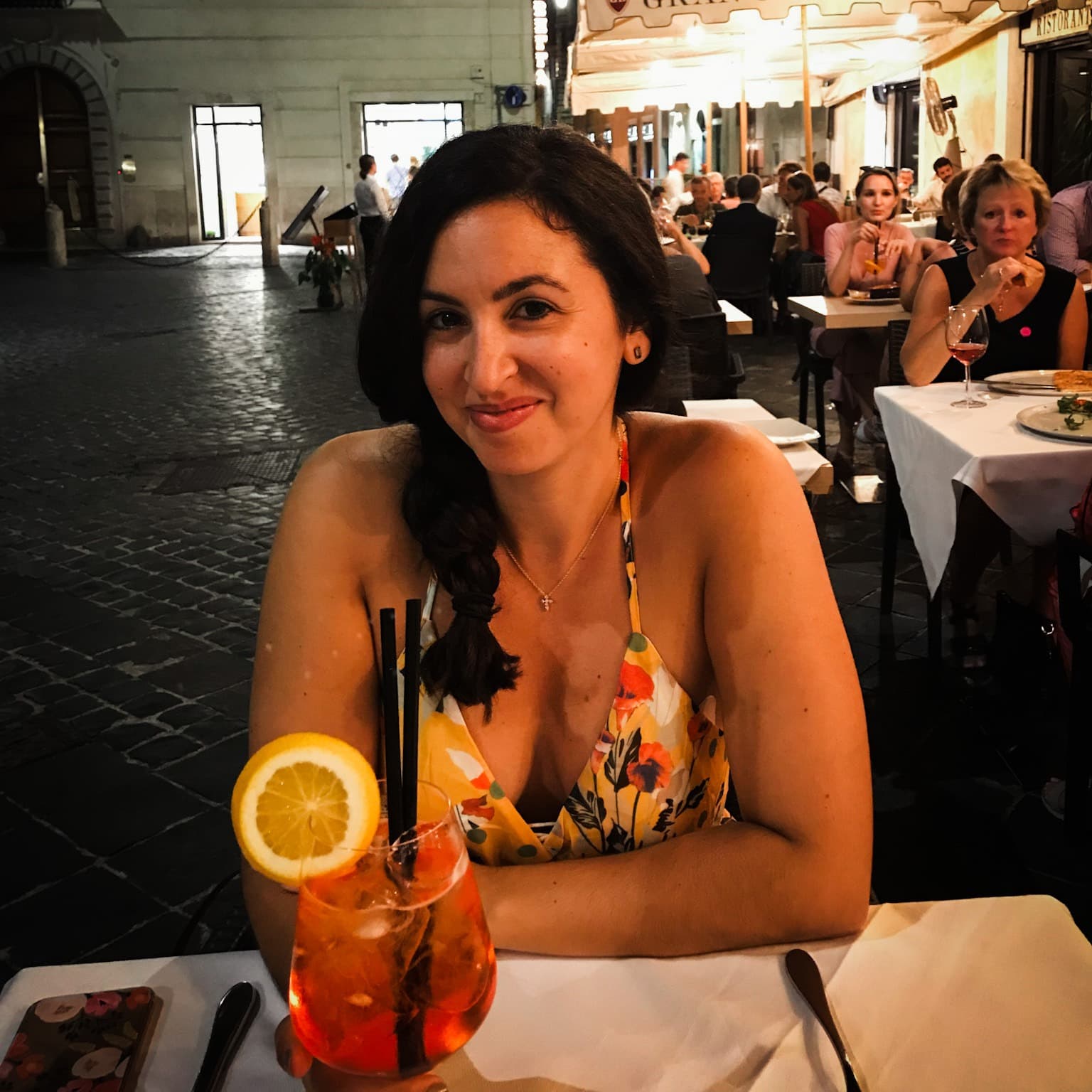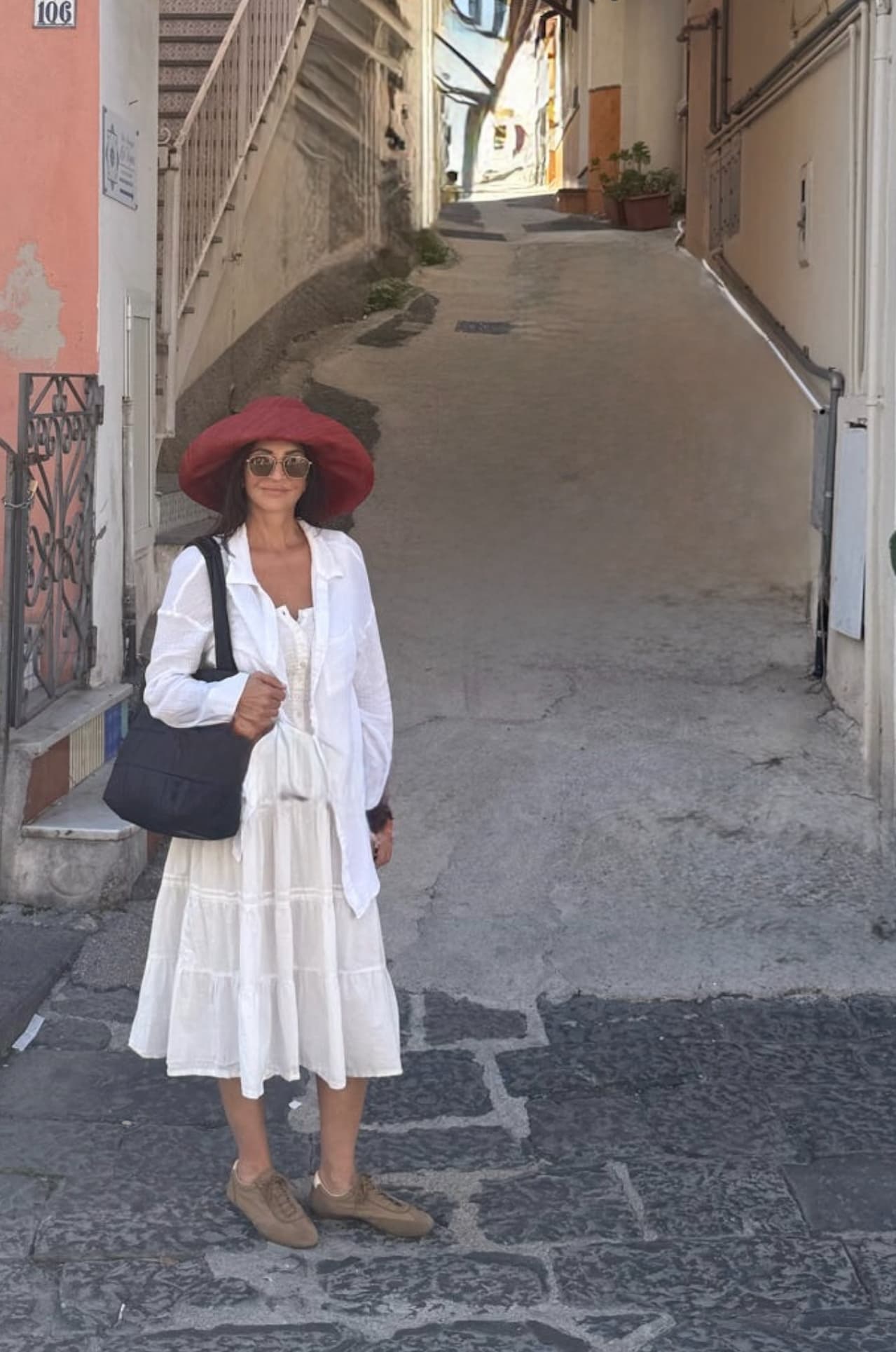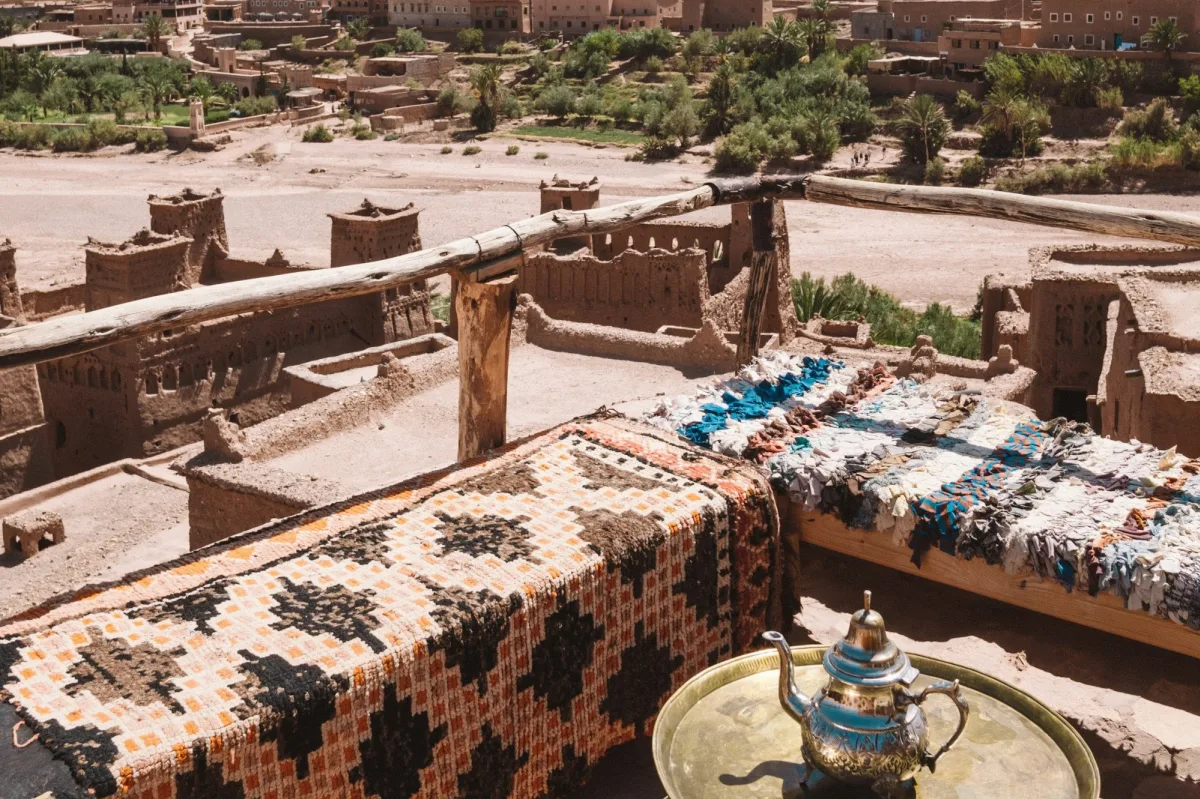
Ready to begin your journey through Morocco’s buzzing markets, ancient cities and scenic landscapes? With tips for exploring everything from the vibrant streets of Marrakech to the tranquil beauty of the Sahara Desert, this Morocco travel guide offers insight sourced from experts and locals alike.
When you’re ready to plan your trip to Morocco, connect with a Fora Advisor. They’ll provide detailed intel catered to your travel goals and preferences, helping you to plan the perfect trip for your style. Plus, your travel advisor can unlock hotel perks like complimentary room upgrades and extended check-in/out times, among other amenities to boost your trip. Whether you’re looking for a hotel booking by itself or a fully planned itinerary, your Fora Advisor is there to support.
Morocco travel guide: what to know before you arrive
Morocco can feel like an otherworldly experience (in the best way). For centuries, the country was a crossroads between the Old World continents (Europe, Asia and Africa), and the influences of that cultural dynamism still exist today.
There are a few things to keep in mind before you visit that can enhance your stay.
Arabic, French and Amazigh are the most commonly spoken languages
Outside of the cities, resort areas or major hotels — like the Amanjena resort in Marrakech or Four Seasons’ Casablanca hotel — you won’t find many English speakers. French is somewhat widespread in the major cities, but otherwise, Arabic is the language of choice for most Moroccans.
As you get into smaller villages and more rural areas, you may encounter locals who only speak the Amazigh language (the local name for the Indigenous community that foreigners often refer to as Berber).
The official currency is the Moroccan dirham
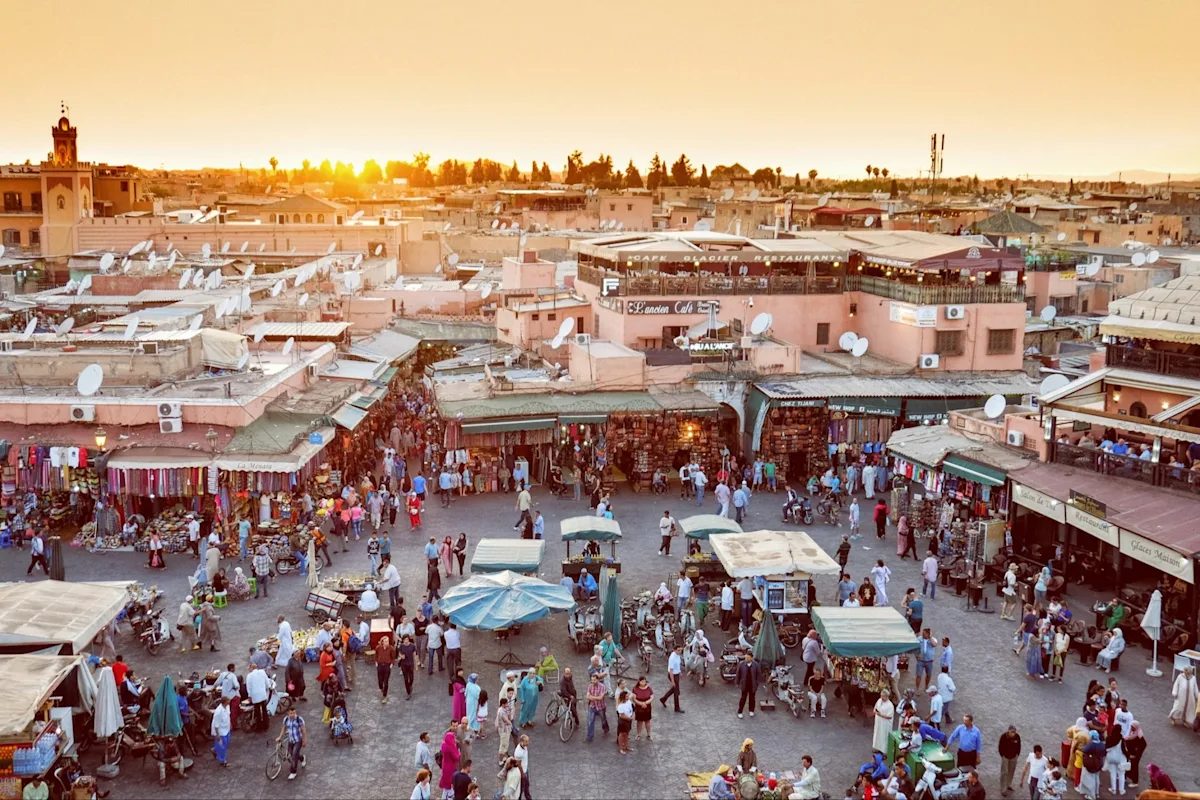
In urban areas, you generally won’t need to worry about carrying cash, as card payments are widely accepted. However, you should be aware of the current exchange rate between the Moroccan dirham (MAD) and US dollar.
If you’re planning on venturing into Morocco’s souks — traditional open-air markets (we highly recommend experiencing this!) — or checking out rural areas, you’ll likely want to carry cash.
The weather may be cooler than you’re expecting (but it does get very hot during summer)
Morocco’s interior — including major cities like Marrakech — is extremely hot during summer, while the Sahara region is hot all year. At night, though, temperatures can drop to the low 50s and 40s (℉), and both the coasts and northern half of the country are surprisingly mild throughout the seasons.
The best time to visit depends on your desired itinerary
Broadly speaking, spring and fall are the best times to visit Morocco. The weather is milder and most destinations are at their liveliest. If you have a specific reason to visit — maybe you’re thinking about surfing along the shores of Essaouira, Morocco or traversing the Sahara — then you might consider visiting during other periods.
If you want help building your Morocco itinerary, reach out to a Fora Advisor. They can help you book tours with trusted partners, plan logistics and more while you focus on all the fun stuff.
Yes, Morocco is safe to visit (but there are a few things to consider)
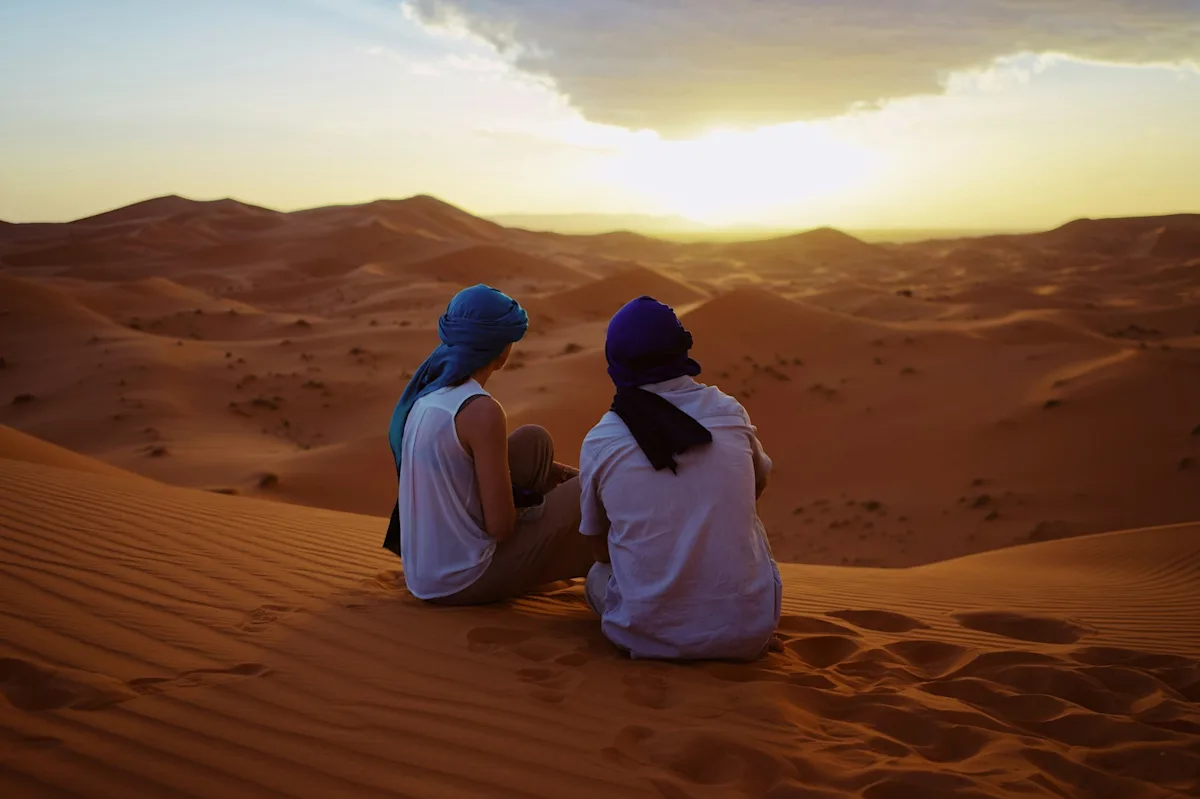
Morocco is safe for virtually all travelers. Crime rates are relatively low and the country is largely stable.
That said, Morocco is a little more conservative than most American or European countries. There’s a general expectation that travelers dress modestly (it’s wise to bring a shawl to cover one’s head and shoulders when visiting certain sites) and respect local traditions.
American leisure travelers usually don’t need a visa to enter Morocco
Unless you’re visiting for more than 90 days, you don’t need a visa to enter Morocco from the USA, Canada, Australia, the UK or the European Union.
You may need to bring a power adapter to charge your devices
Morocco uses type C and E power outlets, which probably won’t be familiar to American travelers. But this is easily fixed with a universal power adapter. They’re usually available at airports — or you can save money by ordering one before your trip.
Morocco does luxury hotels right
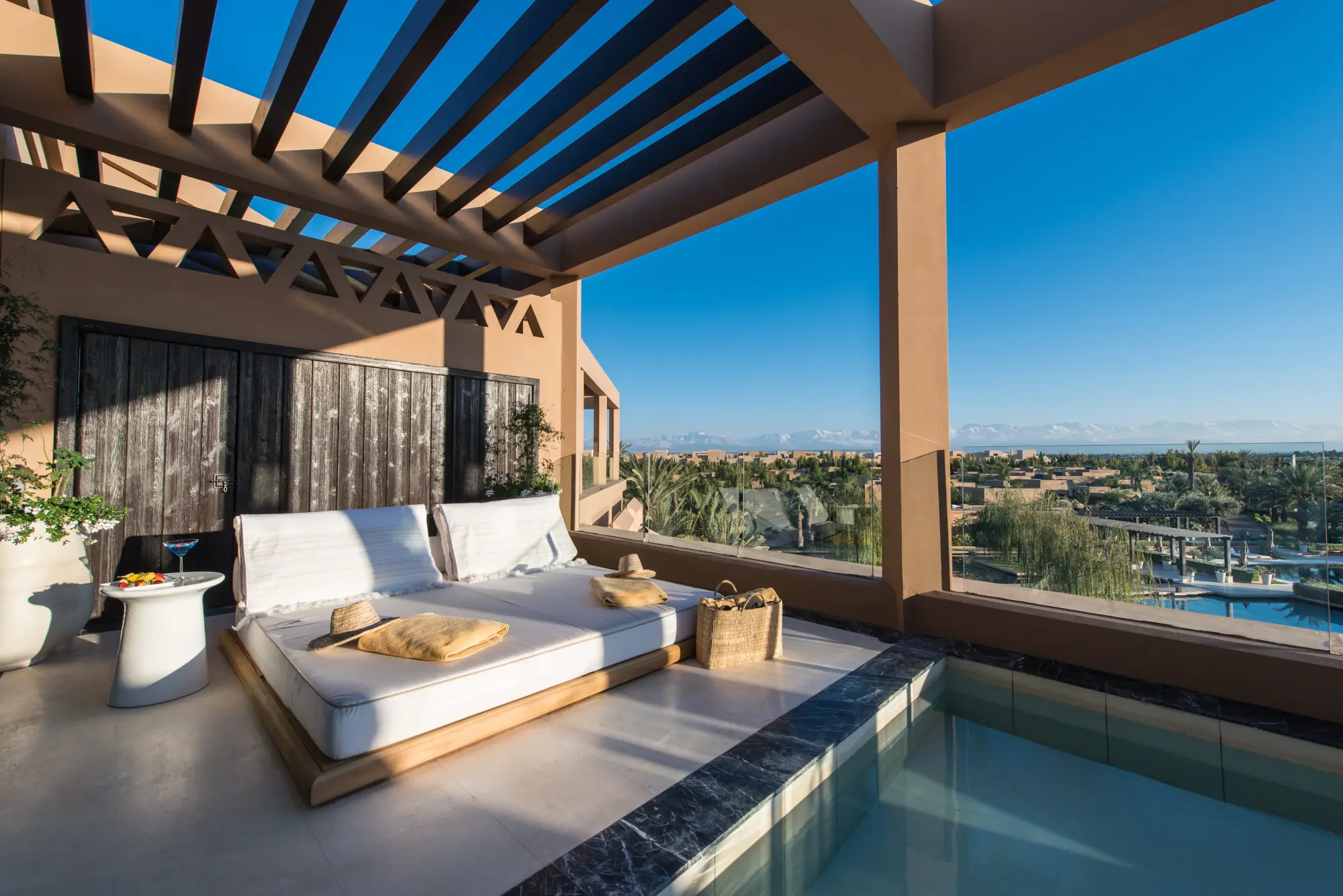
Image courtesy of Mandarin Oriental, Marrakech
Moroccans know how to accommodate. From the majestic riads of Marrakech to the boho seaside properties in Essaouira, Morocco offers a wealth of luxe properties. Immerse yourself in luxurious amenities, incredible cuisine and top-notch hospitality.
A few of our favorite luxury hotels in Morocco include Amanjena, Royal Mansour Marrakech and Casablanca, Marrakech’s Mandarin Oriental and more. The hotels are enough to inspire a visit to Morocco in and of themselves. By the way, when you book with a Fora Advisor, they’ll be able to unlock VIP perks at many of the top luxury hotels in Morocco.
Morocco travel guide: which destinations are must-sees?
No Morocco travel guide is complete without at least mentioning some of the destinations that make the country so exciting to explore.
We’ve highlighted a few of our favorite cities and regions below, but if you want the full lowdown, check out our guides to Morocco’s best places to visit or, for itinerary ideas, things to do in Morocco.
The imperial cities — Marrakesh, Fes, Meknes and Rabat — Morocco’s must-see destinations
Morocco’s ancient “imperial” cities are teeming with culture and historical significance. The old medinas — walled-inner cities with open-air markets called souks and intricate architecture — are the draw for most travelers.
Marrakech is the most popular for several reasons (check out things to visit in Marrakech), but Fes isn’t far behind. The latter is Morocco’s spiritual heart, while the former has a broader, more cosmopolitan appeal (you’ll see this more polished vibe reflected in some of the best hotels in Marrakech.)
Meknes and Rabat receive much less international attention, but they’re still worth checking out if you’re planning an extended stay. Meknes — or the “Versailles of Morocco” — is a great choice for history enthusiasts while Rabat is the most modern of the four cities (it is the country’s capital, after all), and sits on the country’s lovely Atlantic coast.
Coastal cities like Tangier and Essaouira are home to great resorts
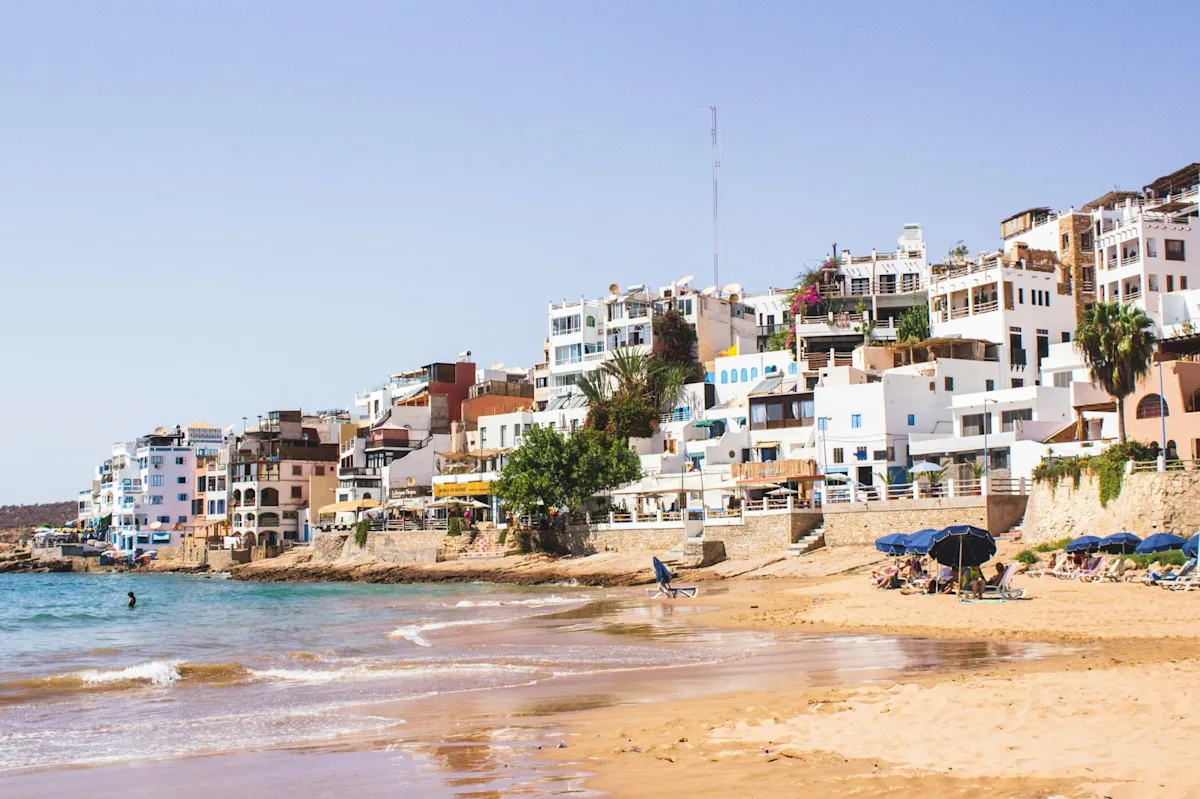
Coastal cities like Tangier and Essaouira, Morocco offer travelers a blend of seaside relaxation and cultural exploration.
Tangier boasts beautiful views of the Strait of Gibraltar and the Mediterranean Sea, while Essaouira is much closer to Marrakech if you’re thinking about a two-stop Morocco itinerary. Both destinations allow travelers to immerse themselves in seaside destinations that provide a serene retreat from the hustle and bustle of city life. It’s worth noting that Essaouira has more of a boho chic vibe, and features a lot of boutique properties and an unusually quiet medina. And because of the Atlantic trade winds, Essaouira’s beaches are popular among surfers and kiteboarders, too.
The Sahara & Atlas Mountains are both Morocco-bucket-list worthy
The Sahara is anything but an empty expanse. Sandy dunes rise and fall before a seemingly endless horizon that’s occasionally broken up by mountains.
The High Atlas Mountains are gorgeous, and perfect for hiking & skiing
The Sahara Desert is a captivating landscape of endless dunes and adventure. You can ride camelback, rent off-road vehicles and, at night, stargaze (with minimal light pollution). Meanwhile, the Atlas Mountains present breathtaking vistas and hiking trails along with charming Amazigh villages. Some parts even offer skiing during the coldest months of winter.
These natural sights offer unique experiences in a country otherwise known for its busy medinas and ancient architecture. Plus, both are accessible from Marrakech and make for excellent day trips.
It’s worth noting that if you have limited time, the Atlas Mountains are an easier add-on for a Moroccan itinerary. To get to the Sahara, you’ll have to add one night of travel on each side of your trip due to the time it takes to drive out.
Casablanca is an interesting destination
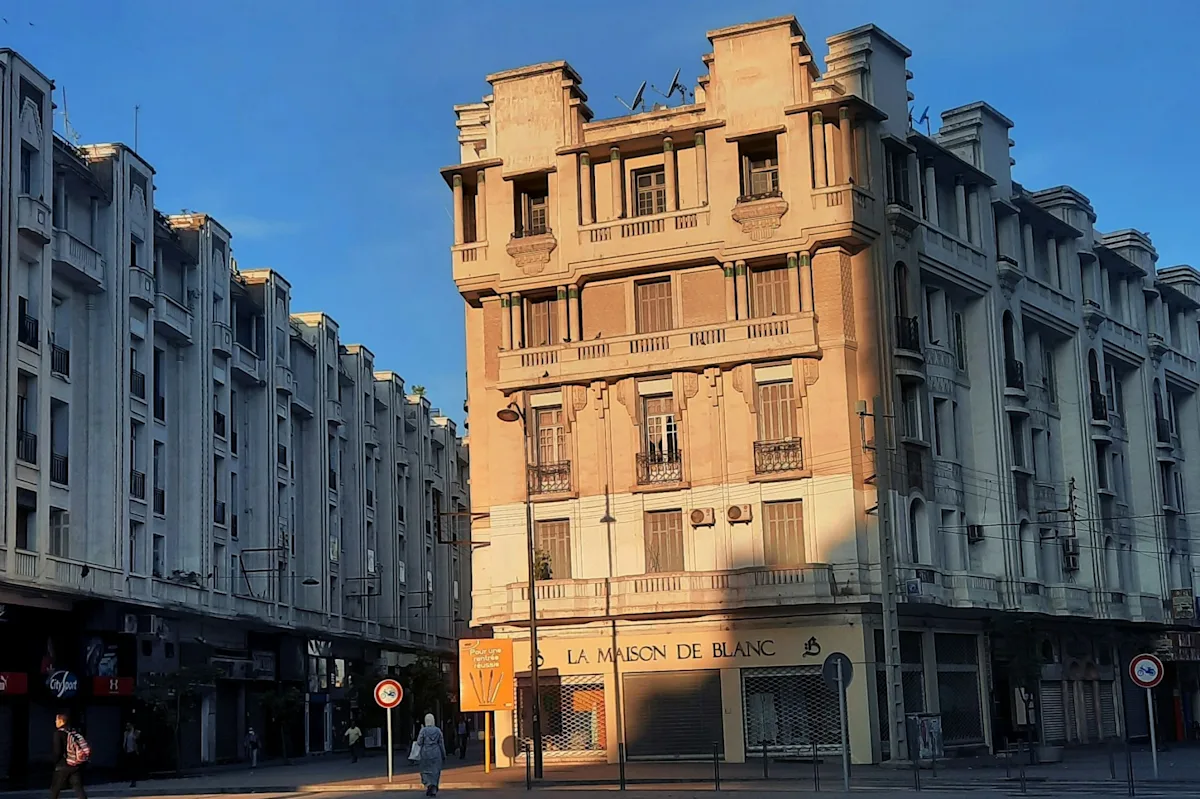
Casablanca has a romantic reputation due to the movie of the same namesake – although it’s worth noting that the film was actually shot in California.
Most travelers just treat Casablanca as a stopover city, but it’s does have some great draws, as well.. You’ll find an impressive Art Deco sector with international restaurants and upscale boutiques to go along with the medieval medina, which maintains the traditional look and feel of Morocco’s souks.
The city also serves as a gateway to other Moroccan destinations, making it an essential stop for travelers seeking to shake off their jetlag. Four Seasons’ Casablanca hotel is a solid choice if you’re looking for nice stopover accommodations. Or, our guide to hotels in Casablanca, Morocco has more options (you can reach out to a Fora Advisor for personalized recs).
Morocco travel guide: what to know once you get there
It’s a great shopping destination, but savvy travelers have an idea of what they want before they go
“Morocco is still very destination specific: it matters where in the country you make your purchases,” Fora Advisor Alexander Shea said. “For example: don’t buy rugs in Fes, wait until you get to Marrakech. Buy leather in Fes. Be sure to buy argan oil from the Argan Oil Women’s co-operative, or when you are closer to Essaouira. Your best bet is to make sure you have a guide with you. They will steer you in the direction of which goods are the best to buy in each location.”
Moroccan food is a delicious blend of Old-World flavors
Moroccan cuisine is rich and diverse. Old World spice markets used to flow through Morocco’s ports and medinas, leaving a permanent imprint on the local cuisine. Our guide to the food in Morocco offers a detailed breakdown of local flavors plus a few favorite dishes. It’s worth noting that Moroccan cuisine is rich and diverse.
Moroccan meals offer a sensory experience that taps into the country's heritage, and sharing a meal — or afternoon tea — is as much a cultural experience as it is a gastronomic one.
Moroccan water: do’s and don’ts
Many hotels have filtered water readily available for you, and we recommend packing a reusable water bottle to travel as eco-friendly as possible. Outside of high-end resorts, do opt for bottled or boiled water to stay hydrated and avoid consuming tap water, which may not be potable for travelers.
Alcohol is widely available in Morocco (with some exceptions)
There’s a misconception that alcohol is banned in Morocco — this simply isn’t true. In fact, Morocco has a thriving wine industry. In addition, most hotels and restaurants in urban areas serve alcohol.
Still, it’s worth noting that alcohol consumption isn’t as prevalent in Morocco as it is in Europe or the US — and some areas, particularly near mosques or other sacred places, do prohibit alcohol.
Fun fact: Royal Mansour Marrakech is home to the largest wine cellar in Africa.
Non-Muslims typically aren’t allowed in most mosques, including famous landmarks
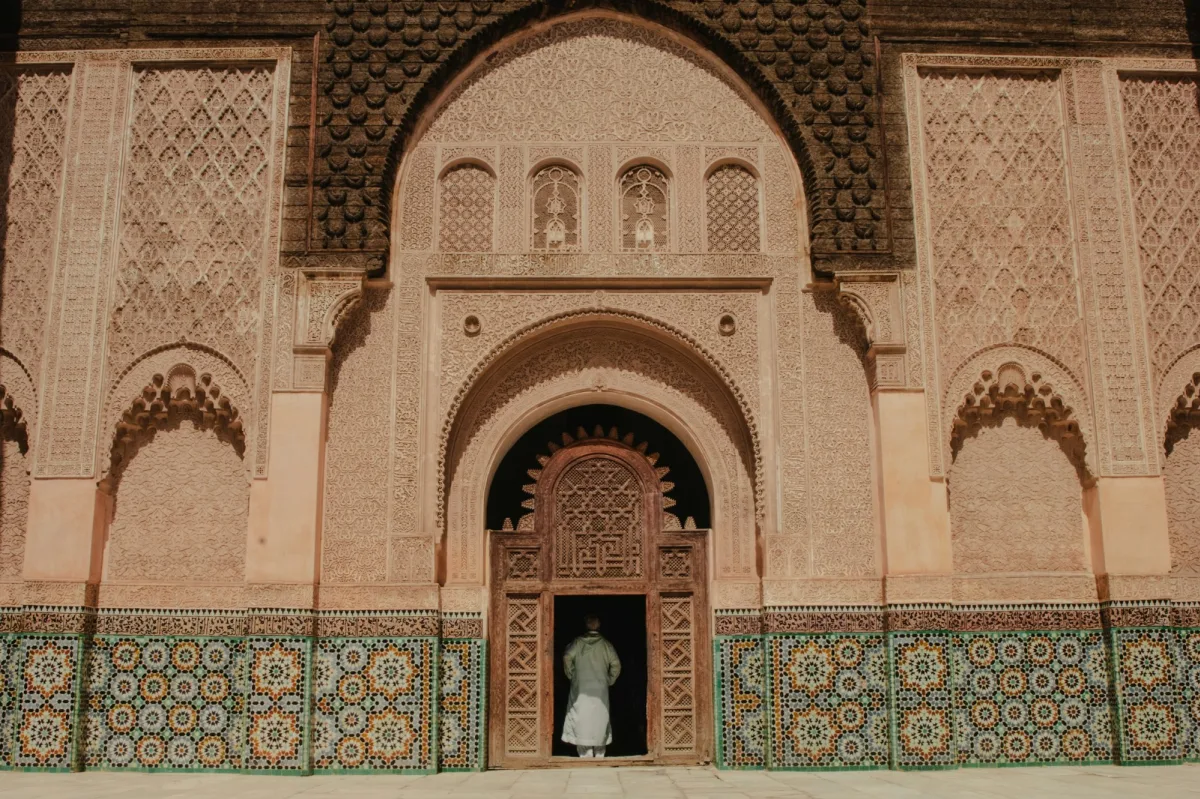
Some of Morocco’s most gorgeous architecture is exhibited in historic mosques in cities such as Marrakech and Fes. Non-Muslims are certainly allowed to admire the details from the outside, but only practicing Muslims are allowed inside most mosques. Even if you aren’t Muslim, the mosques are still worth admiring from the outside!
Tipping is widely expected in Morocco
Tipping is not necessarily expected in Morocco, but it’s definitely welcomed, particularly in the service industry. There’s no fixed amount, but it's customary to leave around 10% on top of the bill in restaurants and cafées, and a small gratuity for hotel staff. Tipping a few dirhams (Morocco’s currency) for small services like luggage handling is customary, too.
Morocco travel guide: what’s the best way to get around?
Morocco has well-developed infrastructure as far as transportation goes. Highways connect all the major destinations and domestic airlines run flights between most of the big cities. But there are still a few things to consider before visiting.
Until recently, most international flights landed in Casablanca (where you could catch connecting flights elsewhere)
Until very recently, nearly all flights from the Americas first stopped in Casablanca. The city is well connected to the rest of the country. But you still have to factor in additional travel time if you’re planning on visiting any other part of the country. However, United Airlines announced that it would be running nonstop flights from Newark to Marrakech three times a week beginning at the end of October 2024.
Public transportation in Morocco is decent
Morocco is investing heavily in its public transportation. For example, developers are building a high-speed railway between Casablanca and Marrakech with 30-minute travel times. Otherwise, traditional trains, buses and “grand taxis” are all options that will take you from city to city. (“Petit taxis” can take you around the city center; “grand taxis” can be arranged for city-to-city transportation).
That said, “Transportation is tricky,” Angela Marini, a member of Fora X, noted “The train system isn't totally dependable and you need a vetted car service. Using a travel agent in-the-know can be very helpful”
Rental cars or private transfer may make sense
Car rentals are also widely available in Morocco’s bigger cities. A Fora Advisor can help you here, or even arrange private transportation if you prefer. At Fora, we work with some great local partners who can arrange a driver and guide as part of a full package, and this is usually a really great option for travelers.
Have more questions? Let a Fora Advisor help
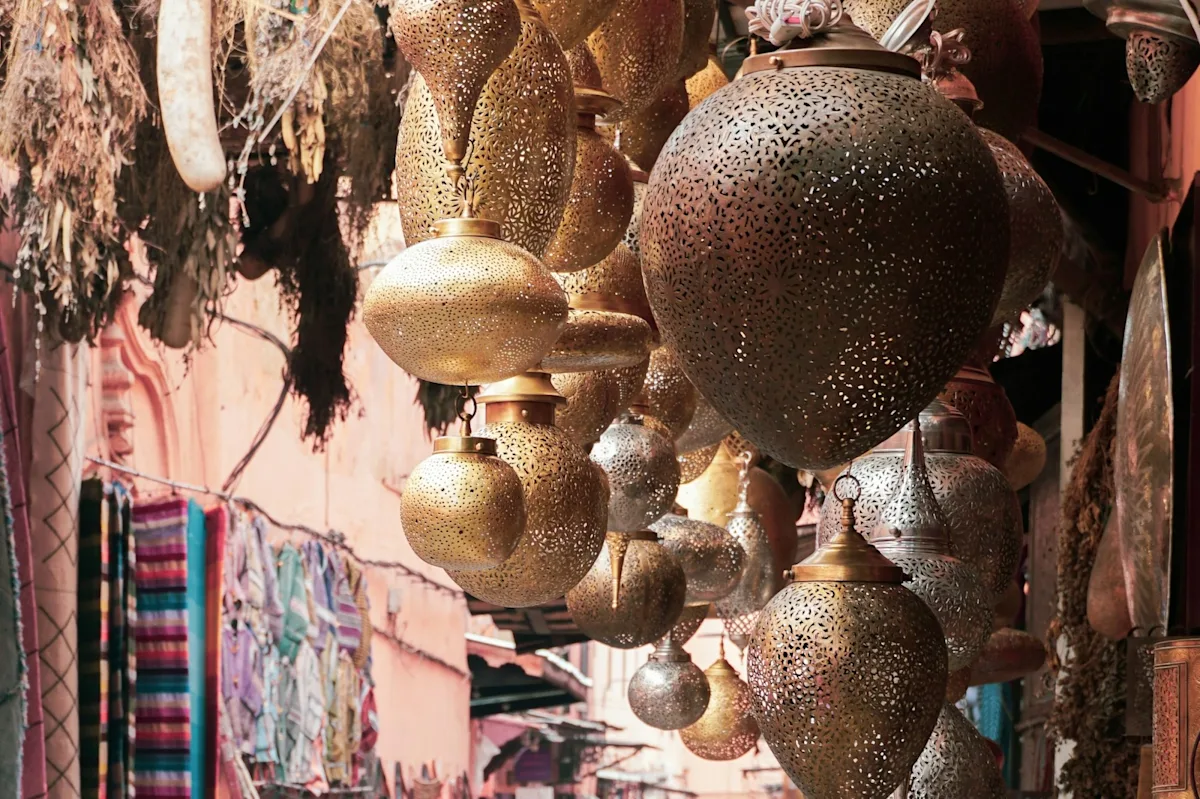
Still have questions after reading our Morocco travel guide? There’s no substitute for working one-on-one with a travel pro.
You can collaborate with a Fora Advisor to plan the trip that’s perfect for your style and preferences. Plus, they work with trusted partners on the ground. When you connect with a Fora Advisor to plan your trip, they’ll be able to answer all your questions and set you up with the best possible experiences.
Need to know which restaurants in Marrakech serve the best local food? Want to stay at a hotel that perfectly embodies the Moroccan riad experience (like The Oberoi in Marrakech)? Looking for the best way to traverse the Sahara on camelback? Or maybe you simply want to know the best way to get from point A to point B? A Fora Advisor can help with all the above and more.
More travel inspiration
Not quite sure Morocco is the ideal destination for your next vacation? Check out the guides below for more travel inspiration:

